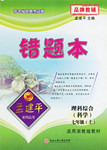题目内容
I spent two months with an American family last year when I studied in America.
It is said, “The best house is in America, the best wife is in Japan, and the best food is in China.” So I took pride (自豪)and __21__ to __22__ “the best food” for my American family. Each day, regardless of my poor skill of cooking, I would do something in __23__ way: changing the dishes’ colour, the meat’s type or the soup’s style. (风味)Thus, my American friends could discover the __24__ of eating Chinese food. Because of my “__25__” job, I was often rewarded (奖励) by their __26__ of appreciation (感激)such as “very delicious”, “excellent”, etc.
But the joke was here: Yesterday, I cooked Sichuan style __27__ for dinner. I was __28__ at my achievement.(成就)
When all the family members arrived at the table, they first looked __29__ at the fish, then looked at me. “Why do all the fish have their __30__?” they asked, “It’s terrible!”
Terrible or beautiful? I don’t know. But I __31_ know that fish heads are delicious. The __32__ is the best part of fish; in __33__ only the respectable (受敬重的)guest can have the special honour of __34__ it.
Another __35__ thing is: The American friends often said to me “__36__” as they __37__ fruits or other things. According to Chinese tradition I would simply smile in answer to their kindness __38__ actually helping myself to any of the food. __39__, I said “help yourself” to them whenever I brought home fruits. Dear me, no matter how much or how often I brought home food, as long as it was nice to their taste, they __40__ hesitated (犹豫)to use their hands to “help themselves” until all was finished
It is said, “The best house is in America, the best wife is in Japan, and the best food is in China.” So I took pride (自豪)and __21__ to __22__ “the best food” for my American family. Each day, regardless of my poor skill of cooking, I would do something in __23__ way: changing the dishes’ colour, the meat’s type or the soup’s style. (风味)Thus, my American friends could discover the __24__ of eating Chinese food. Because of my “__25__” job, I was often rewarded (奖励) by their __26__ of appreciation (感激)such as “very delicious”, “excellent”, etc.
But the joke was here: Yesterday, I cooked Sichuan style __27__ for dinner. I was __28__ at my achievement.(成就)
When all the family members arrived at the table, they first looked __29__ at the fish, then looked at me. “Why do all the fish have their __30__?” they asked, “It’s terrible!”
Terrible or beautiful? I don’t know. But I __31_ know that fish heads are delicious. The __32__ is the best part of fish; in __33__ only the respectable (受敬重的)guest can have the special honour of __34__ it.
Another __35__ thing is: The American friends often said to me “__36__” as they __37__ fruits or other things. According to Chinese tradition I would simply smile in answer to their kindness __38__ actually helping myself to any of the food. __39__, I said “help yourself” to them whenever I brought home fruits. Dear me, no matter how much or how often I brought home food, as long as it was nice to their taste, they __40__ hesitated (犹豫)to use their hands to “help themselves” until all was finished
| 小题1: |
|
| 小题2: |
|
| 小题3: |
|
| 小题4: |
|
| 小题5: |
|
| 小题6: |
|
| 小题7: |
|
| 小题8: |
|
| 小题9: |
|
| 小题10: |
|
| 小题11: |
|
| 小题12: |
|
| 小题13: |
|
| 小题14: |
|
| 小题15: |
|
| 小题16: |
|
| 小题17: |
|
| 小题18: |
|
| 小题19: |
|
| 小题20: |
|
小题1:D
小题2:C
小题3:B
小题4:B
小题5:C
小题6:A
小题7:B
小题8:B
小题9:C
小题10:D
小题11:A
小题12:B
小题13:B
小题14:A
小题15:C
小题16:C
小题17:A
小题18:C
小题19:D
小题20:C
本文主要描述了“我”在国外经常做中国菜给外国主人吃,虽然厨艺不精,但还是常受到他们的称赞。另外还举了两个例子体现了中西文化的差异。
小题1: D. 在国外做中国菜,显然是感到自豪和高兴。
小题2: C. 从接下来的文字中可以得知是烹饪而不是其他动词。
小题3: B. 从下文中可以看出“我”是以一种新的方式来做菜。
小题4: B. 根据上下文,外国人吃“我”做的菜应该是感到有乐趣的。take delight in doing sth.意为“乐于做……”
小题5: C. 从下文得知外国人喜欢吃“我”做的菜,那“我”的菜应该是好吃的。
小题6: A. 下文提到了比如“very delicious”, “excellent”,很明显是表达的意思。
小题7: B. 从下文可以得知是鱼,而不是其他食品。
小题8: B. “我”自然对自己的作品是满意的。
小题9: C. 根据下文外国朋友的疑问和惊讶的语气可以选出答案来。
小题10: D. 前后照应,下文提到了“fish heads are delicious”。
小题11: A. 这里是加强语气,意为“我”的确知道。
小题12: B. 根据上下文可以得出答案。
小题13: B. 因为“我”是中国人,很明显了解中国的习俗。
小题14: A. 在中国只有受敬重的人才有享用它的荣幸。
小题15: C. 最后一段讲的是另外一件表现中美文化习惯上的差异的事,应该是有趣的事。
小题16: C. 根据平时的口语表达可以得出答案。
小题17: A. 根据上下文得知是买回来后让“我”随便吃。
小题18: C. 中国的习俗是嘴上可能会说吃,而实际上并不会真的去吃。
小题19: D. At last“最后”,Above all“最重要的是”, After all“毕竟”, In return“作为回报”。
小题20: C. 文章最后提到“until all was finished”,很明显他们是从不犹豫。
小题1: D. 在国外做中国菜,显然是感到自豪和高兴。
小题2: C. 从接下来的文字中可以得知是烹饪而不是其他动词。
小题3: B. 从下文中可以看出“我”是以一种新的方式来做菜。
小题4: B. 根据上下文,外国人吃“我”做的菜应该是感到有乐趣的。take delight in doing sth.意为“乐于做……”
小题5: C. 从下文得知外国人喜欢吃“我”做的菜,那“我”的菜应该是好吃的。
小题6: A. 下文提到了比如“very delicious”, “excellent”,很明显是表达的意思。
小题7: B. 从下文可以得知是鱼,而不是其他食品。
小题8: B. “我”自然对自己的作品是满意的。
小题9: C. 根据下文外国朋友的疑问和惊讶的语气可以选出答案来。
小题10: D. 前后照应,下文提到了“fish heads are delicious”。
小题11: A. 这里是加强语气,意为“我”的确知道。
小题12: B. 根据上下文可以得出答案。
小题13: B. 因为“我”是中国人,很明显了解中国的习俗。
小题14: A. 在中国只有受敬重的人才有享用它的荣幸。
小题15: C. 最后一段讲的是另外一件表现中美文化习惯上的差异的事,应该是有趣的事。
小题16: C. 根据平时的口语表达可以得出答案。
小题17: A. 根据上下文得知是买回来后让“我”随便吃。
小题18: C. 中国的习俗是嘴上可能会说吃,而实际上并不会真的去吃。
小题19: D. At last“最后”,Above all“最重要的是”, After all“毕竟”, In return“作为回报”。
小题20: C. 文章最后提到“until all was finished”,很明显他们是从不犹豫。

练习册系列答案
 灵星计算小达人系列答案
灵星计算小达人系列答案 孟建平错题本系列答案
孟建平错题本系列答案
相关题目